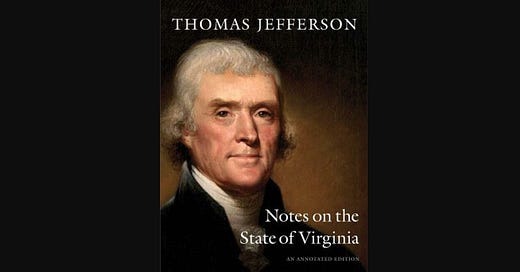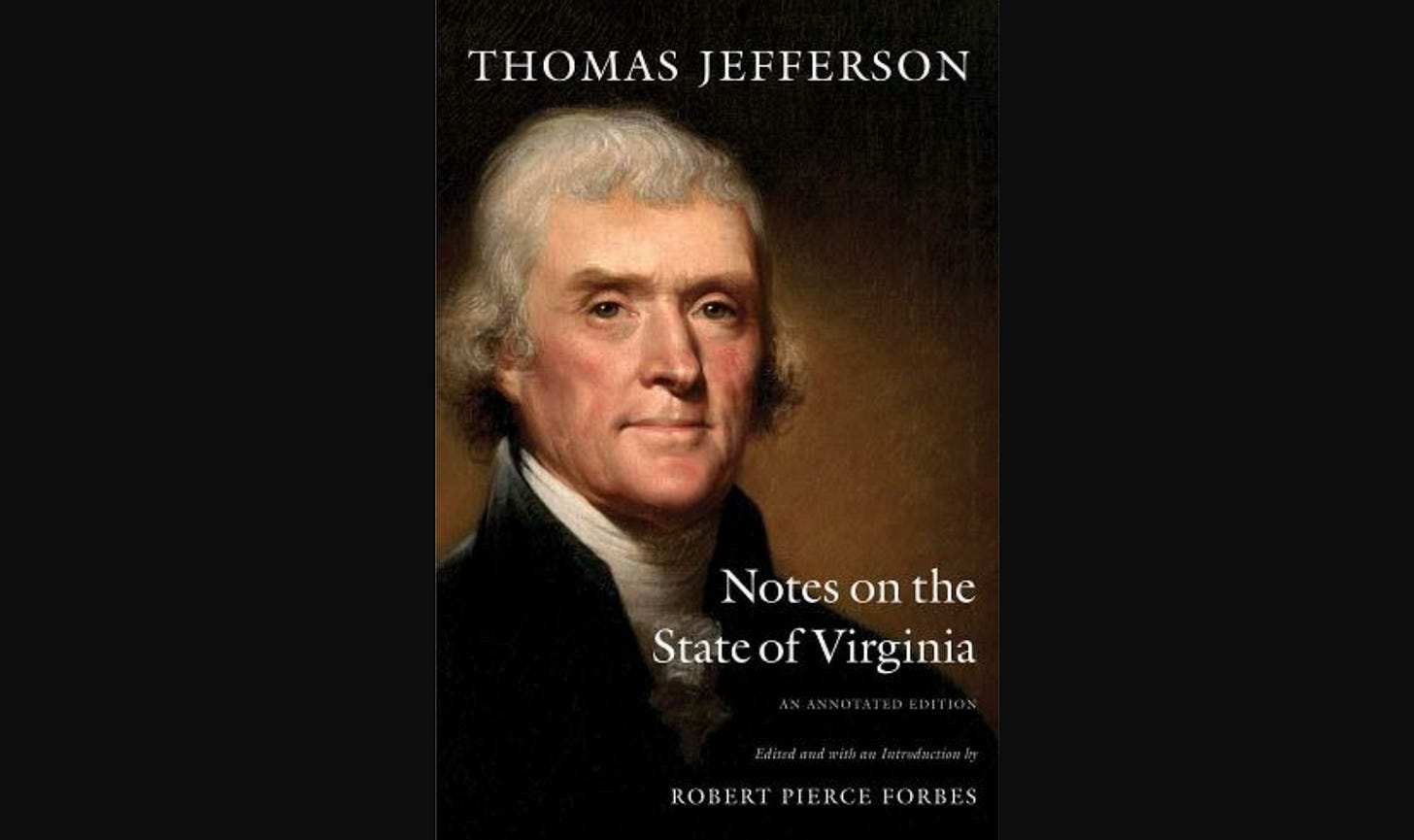Notes on the State of Virginia: An Annotated Edition, by Robert Pierce Forbes
By Timothy Sandefur
Yale University Press, 2022
348 pp. $20 (paperback)
Thomas Jefferson was an insatiable writer, composing tens of thousands of letters, as well as pamphlets and essays, about everything from Plato’s influence on Christianity to the economics of whaling. But he published only one full-length book in his lifetime: Notes on the State of Virginia, which first …
Keep reading with a 7-day free trial
Subscribe to The Objective Standard to keep reading this post and get 7 days of free access to the full post archives.




